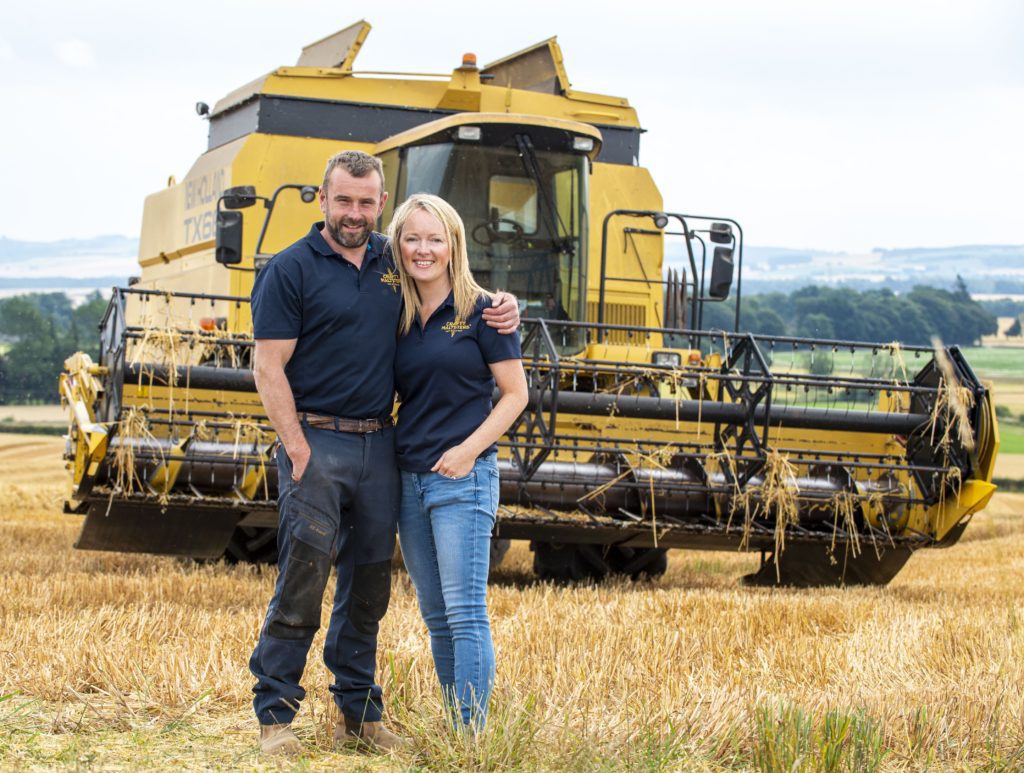Alison Milne and her husband farm 750 acres of mixed arable farmland at Demperston and Dura Mains in Fife.
She admits that, "my whole life is pretty enshrined in agriculture," having been awarded a MBE for services to rural Scotland and agriculture.
She grew up on a farm near Stirling, before working for NFU Scotland latterly as commercial and operations director and has represented both the Scottish Tenant Farmers Association, and National Council of Rural Advisors.
The couple took over the day to day running of the family farm in 2014 and asked themselves the question, 'where do we want to be in 20 years’ time?'
They had traditionally grown grain to sell to a merchant, which was then sold to commercial maltsters.
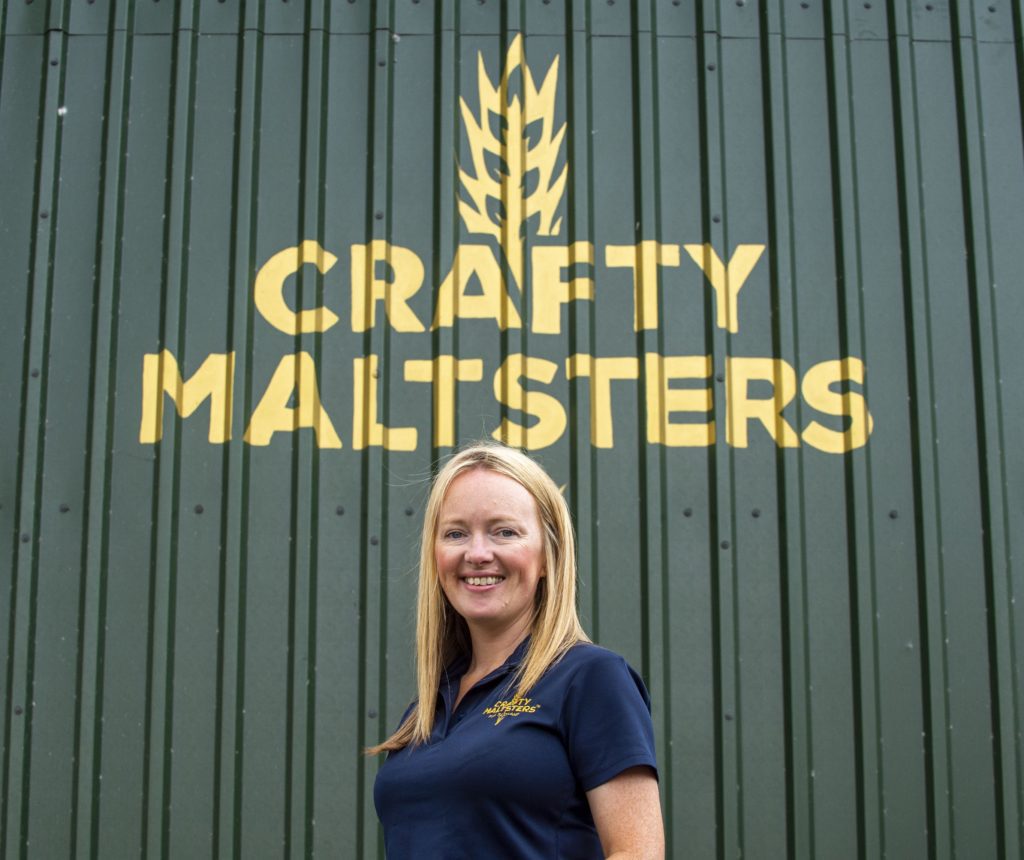
Alison explains, "all we would know was our grain was of malting quality so it would most likely be used in the distilling sector, but there is no traceability of where it might end up."
But they knew their grain, after it was turned into malt, would be an essential ingredient in the booming Scottish beer and spirits sector, she adds, "It made us realise that malting on the farm could be an opportunity with a huge potential market."
They felt they could add provenance, heritage and value, and she said, "we wanted a profitable and sustainable farming business, for our children's future."
Alison now runs Crafty Maltsters with her husband Dan and her father-in-law, adding "Norman is very much involved in the business."
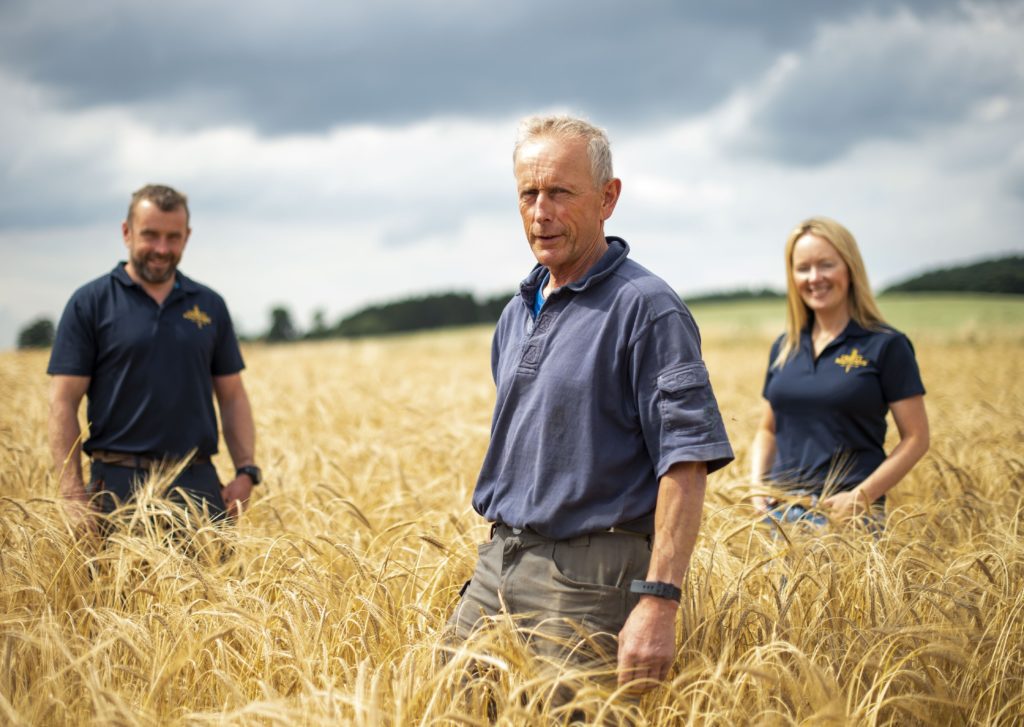
Despite having no malting experience, she said, "we all started at the same level and learnt at the same time, it brought us much closer together.
"But don't get me wrong there were moments when we were all just about in tears."
Normally you grow spring barley for malting from a recommended seed list, she said, "Malt can be a lot more than a bog standard product, there is so much more impact the farmer can have with the varieties and other innovations."
Alison investigated malting further by taking a look at the burgeoning craft malting scene in America, and said, "that was when we really started to get a bit more enthusiastic."
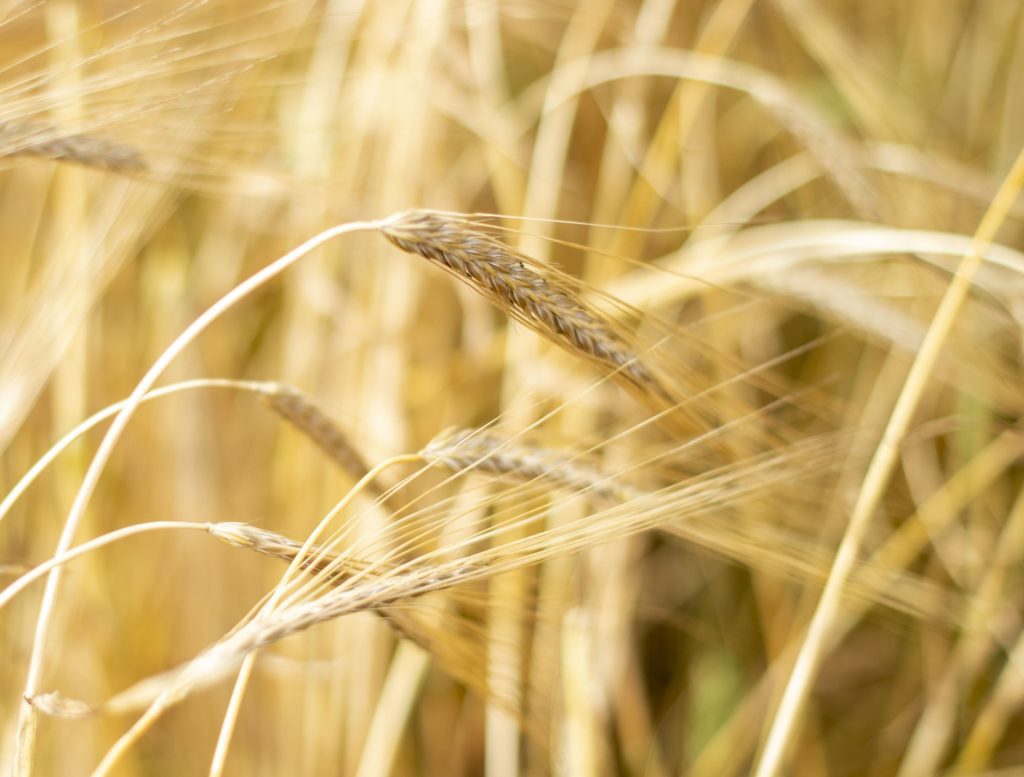
They made contact with Heriot Watt University, "as we knew nothing about the process, and made some good contacts, including a retired lecturer Hugh Alexander who is involved with Amercian Maltster scene."
The biggest stumbling block was equipment, she said, "we got quotes through which were for 3/4 million pounds." With no proven market the figures just didn't stack up, so they put the idea on hold for a while.
But in 2019 they took a leap of faith and began malting themselves. Alison said, "it was always niggling away at the back of our minds, if we don't do this then somebody else would.
"We kept thinking there is something in this and we found an Italian equipment supplier."
This time the price was cheaper but "still a bit eye-watering," she said and they set about establishing whether or not brewers and distillers were willing to pay.
They also spoke to the James Hutton Institute about heritage barleys, and trialled seven varieties and they have now selected four to grow on which they will be malting soon.
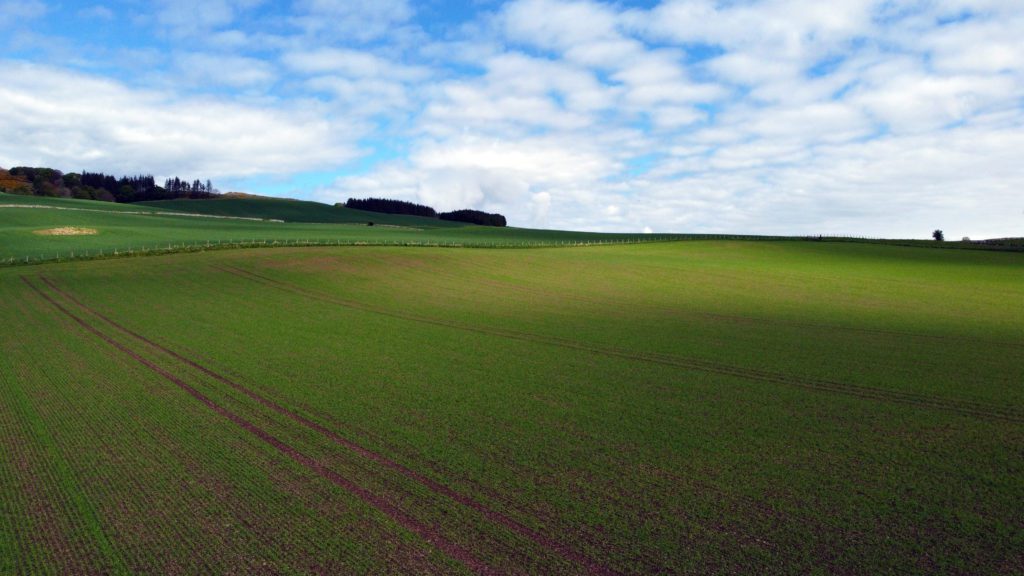
These are Bere grains from Orkney and the Western Isles and 18th century grains, called Scotch Annat and Common.
She said, "we are really excited to see what the flavour differences are and we really wanted to work with breweries and distilleries who were as passionate as we are about the flavour and varieties."
Some of these four heritage malts are destined to travel to Dornoch Distillery to be distilled.
To learn about the malting process Alison spent a lot of time reading text books while Dan and Norman are more practical with their entire careers spent working with grain.
The first stage is harvesting and then the barley is dried to 12 per cent moisture. It is then stored for between six weeks to 12 months to mature and it basically goes to sleep.
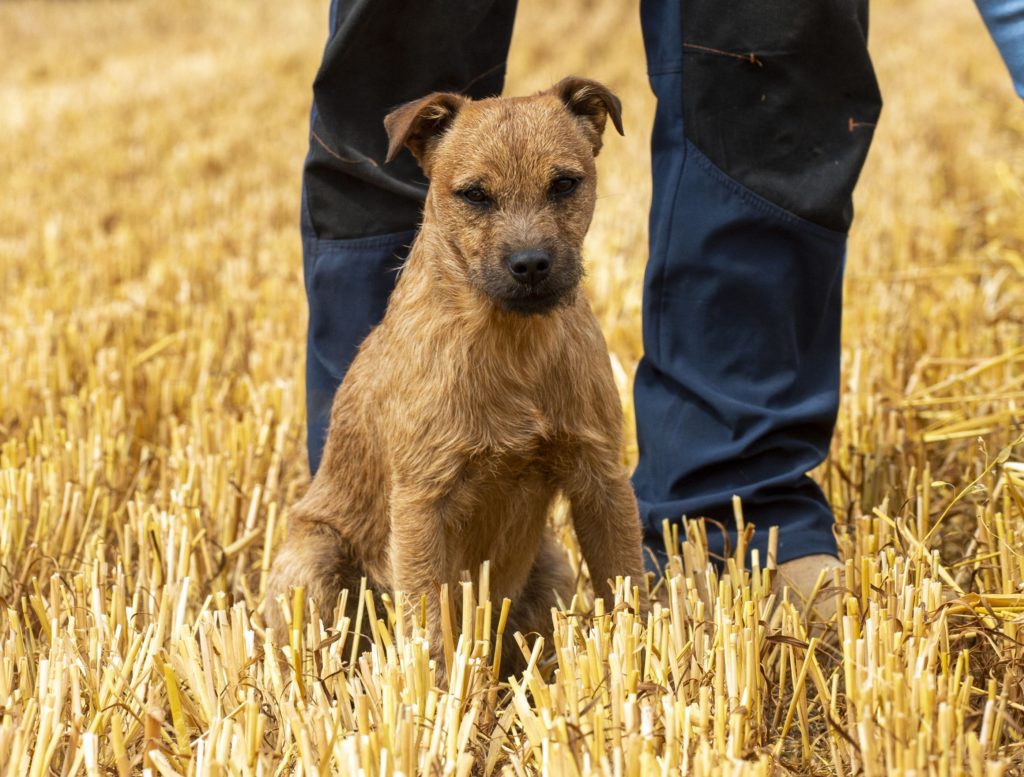
She said, "we continually test the grain and we malt the barley the following year, as you have got to treat it with care."
To begin malting, the grain is steeped in water to initiate growth.
The barley is washed three times and it is air rested, to increase moisture levels to 45 per cent, she said, "the critical bit is that it's hydrated all the way through, so it is not straightforward."
During the steep the grain has a fresh cucumber smell, she said, "someone told us that before and we were not convinced, but it does."
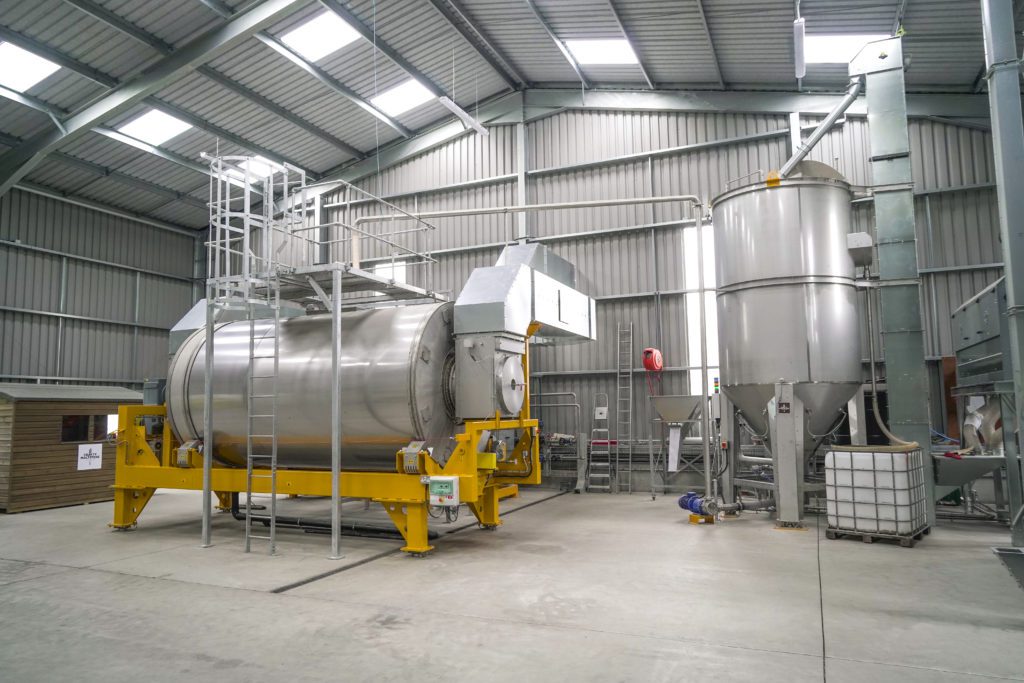
Then the next stage is germination, which heightens growth, she said, "not to be too geeky about it you break down the cell walls to make the starch and enzymes available for the brewer."
Traditionally it would be a seven day cycle however she said, "we don't push the grain, Dan will basically give it time, up to nine days."
During germination the moisture levels reduce by about a percentage point a day, and it is critical to maintain a stable temperature.
The final stage is kilning where, "you are locking the flavour in, by using high temperatures to create differences in flavour and colour in the malt." At this stage it smells biscuity and sweet.
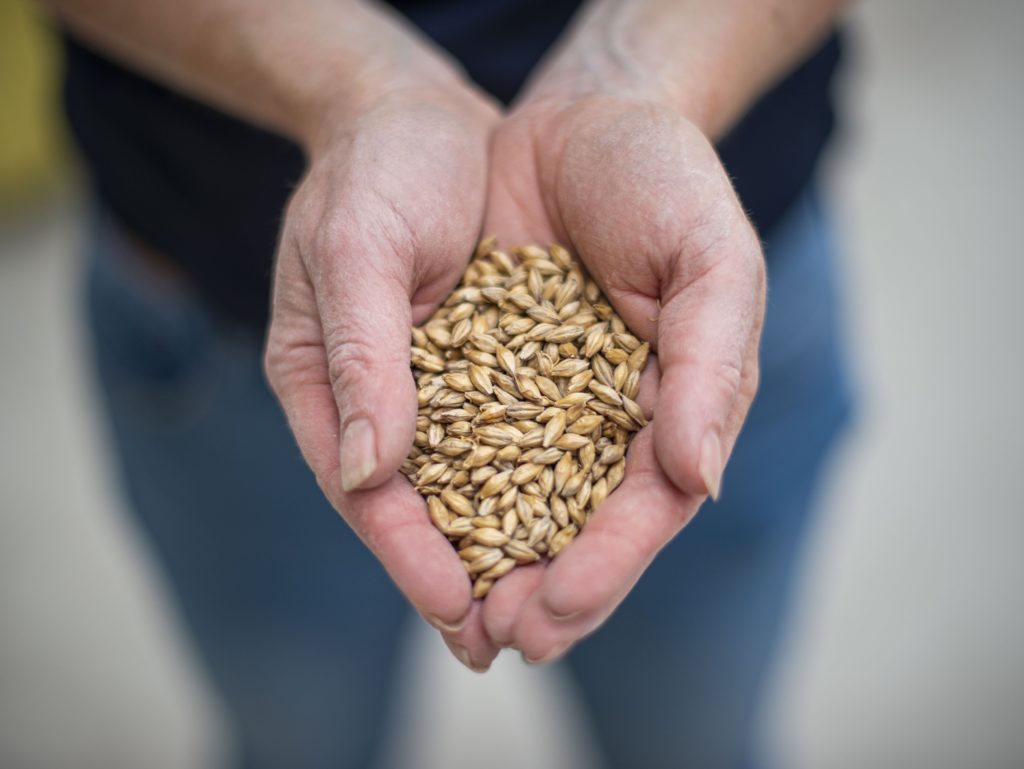
Brewers also use speciality malts like; caramel malt, crystal malt or biscuit malt to add colour and flavour, like roasted grain for darker beer or oat malt for a creamier texture.
Speciality malts are where they originally thought their business would be but they had to first learn how to make basic malts, sell them and prove the quality.
Alison adds, "now we can't make those fast enough so our plant is pretty much at capacity."
The Crafty Maltsters use a drum system which rotates so the rootlets can't mat together, "it is very high tech," she explains.
During lockdown they began supplying some enthusiastic and loyal home brewing customers.
She said, "they really know their stuff and every week they ask when our heritage range will be ready.
"They all say the efficiency they get from our grain is far higher, that means they get more beer, and they just feel that it is better in terms of the flavour."
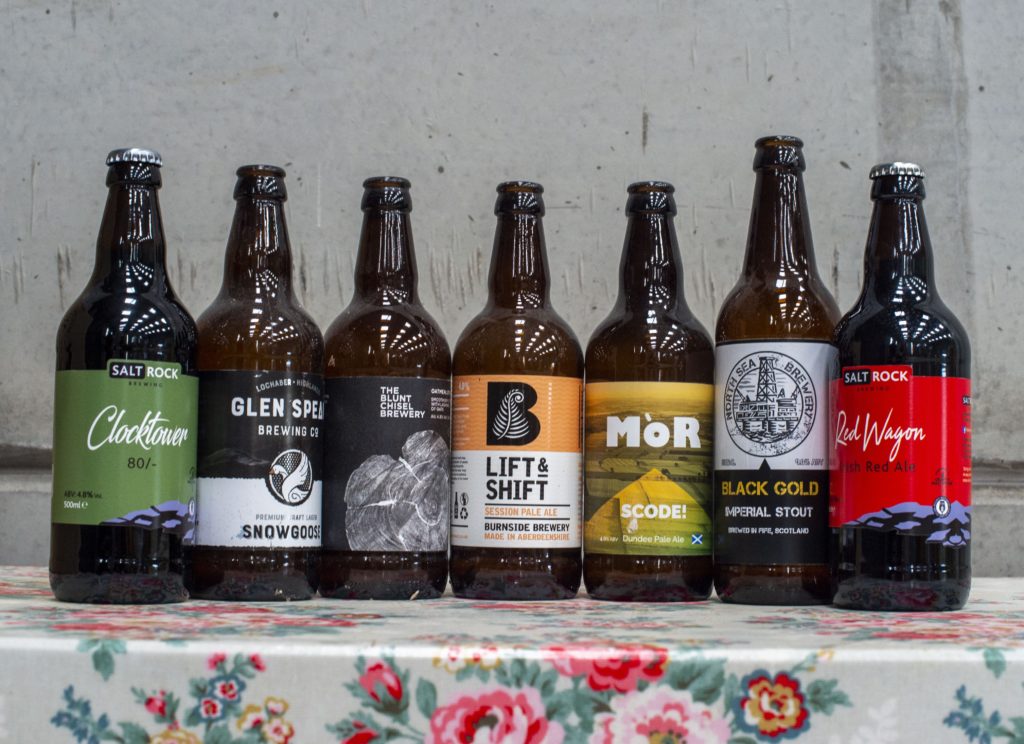
Initially business came from smaller breweries but as they have proved their quality and consistency she tells us, "we are seeing more distilleries."
They have just sent ten tonnes of organic malt to Lindores Abbey Distillery, she explains, "it is not our own barley but it was grown on the organic Falkland estate nearby.
"We malted it for them and drove it along the road in the tractor it basically replicates the original journey in 1494 when the first whisky that was made by the monks."
This is first whisky grown, malted and distilled in Fife since then.
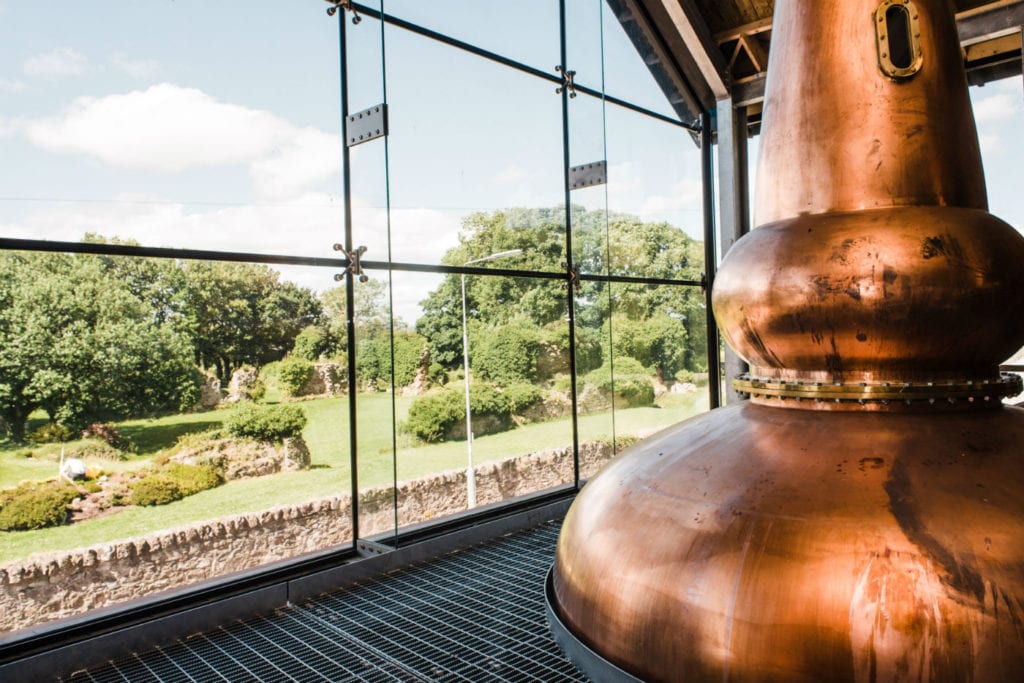
In Fife there is quite a history of malting, at one time there was a distillery in Auchtermuchty and the owners had maltings nearby and they were widely regarded as being the pioneers of commercial malting in the UK, "so it is nice to bring that tradition back to the area," Alison says.
Initially Alison never saw agriculture as career choice, having studied Psychology and Management at Glasgow University.
She said, "I really enjoyed living in the city but I knew I needed to come back to the rural environment. I don't think I would have been happy otherwise."
Farming has been in both Alison and Dan’s families for more than six generations and they both see themselves as guardians of the land.
The next generation growing up on the farm are boys, Finlay (13), Max (12), and Cameron (5). She said, "all the boys love being outdoors, getting dirty and are proper country lads."
A major part of setting up Crafty Maltsters was to create an opportunity to ensure the farm is able to stay in the family for future generations.
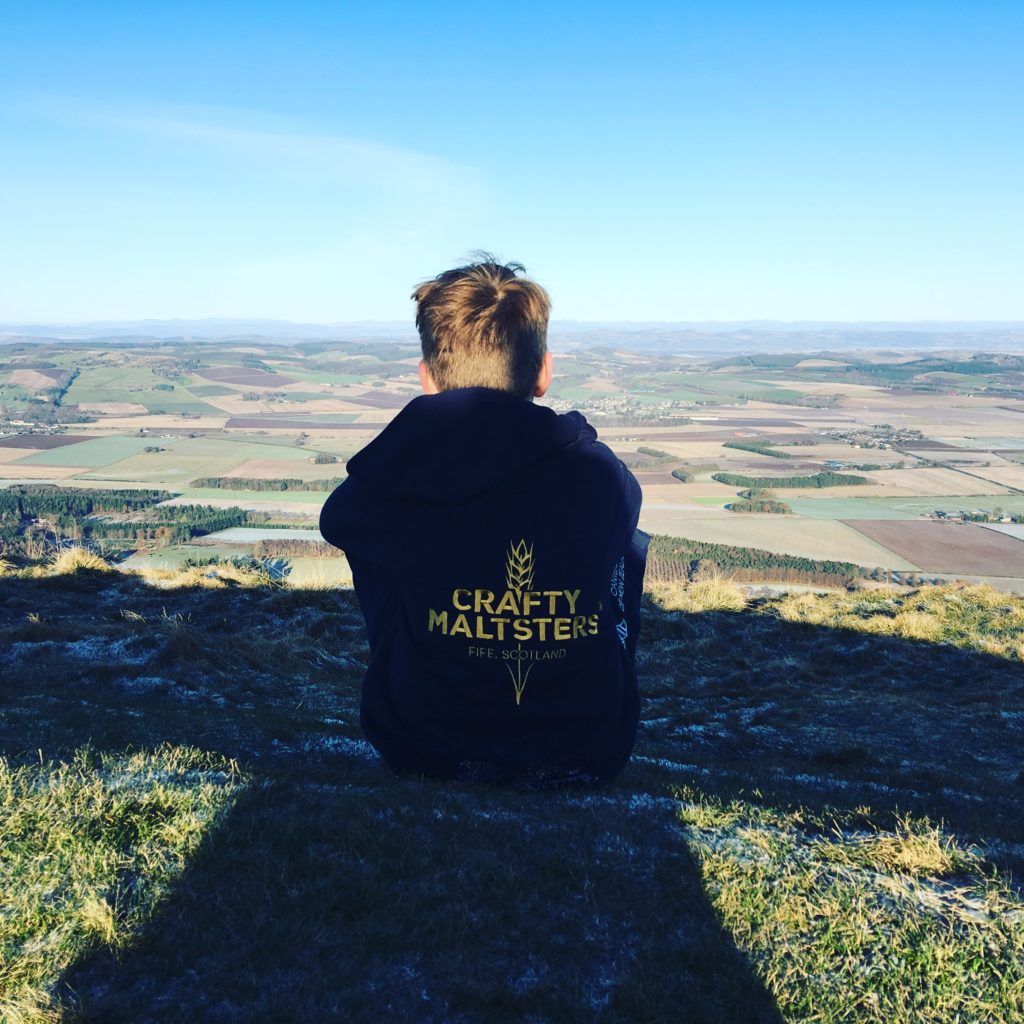
The whole work life balance is massively important for them both, family is just one thing they won't compromise on.
Setting up malting operations was a risk, she explains, "we didn't have any signed customers, there were a lot of things along the way with additional costs and regulations.
"The equipment came with no installation instruction Norman and Dan built it with nothing more than pictures."
" However, I'm glad we did, when it came down to it we absolutely believed that the barley and malt was such an opportunity."
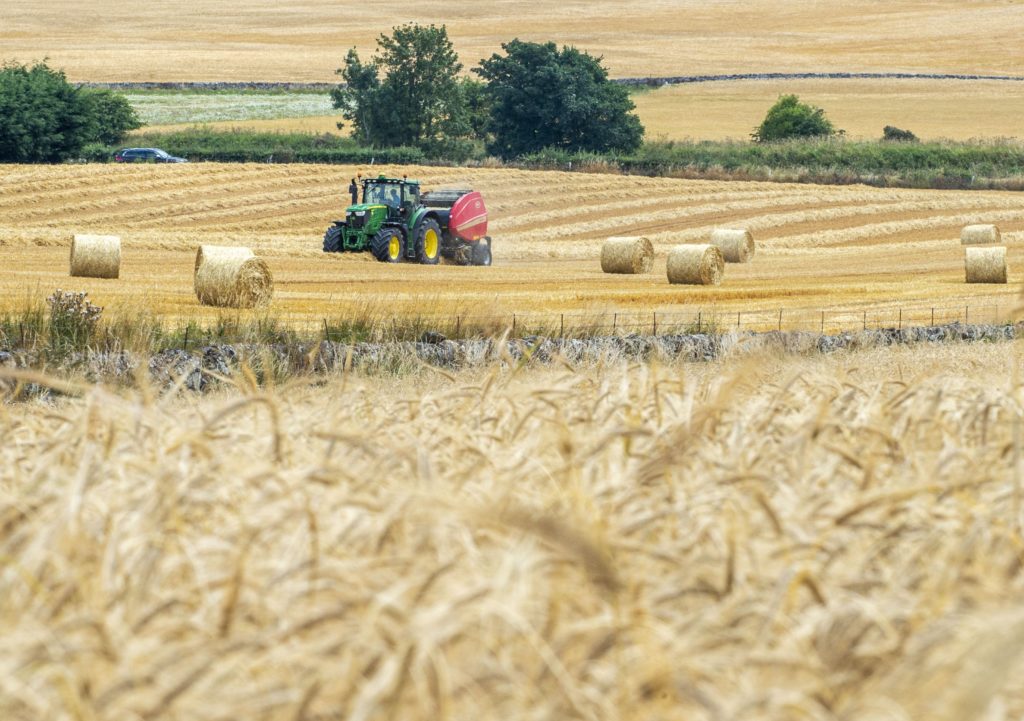
They now work with about 24 breweries, Burnside Brewery in Laurencekirk, Glen Spean Brewing Co in the Highlands, “and we also we have lots in Fife; Cool brewing, Beath brewing, Salt Rock brewing”.
They are keen to collaborate on interesting projects like one with Raasay distillery where they malted a Borders farmer’s Salome grain, as well as creating hyper local ales with the likes of Windswept brewing.
She said, "we really view it as a partnership with the brewer and distiller so we hope there are more conversations to be had about different ways we can malt and we have big ambitions for the future."
Harvest time is imminent, this year will be particularly difficult as they are malting as well as harvesting, she said, "everybody just mucks in, and you have the adrenalin it is the best time of the year but it is stressful.
"We want to make a bigger impact but we still want to keep the authenticity and stay a family business, the farmer who grew the grain is the person malting it."
